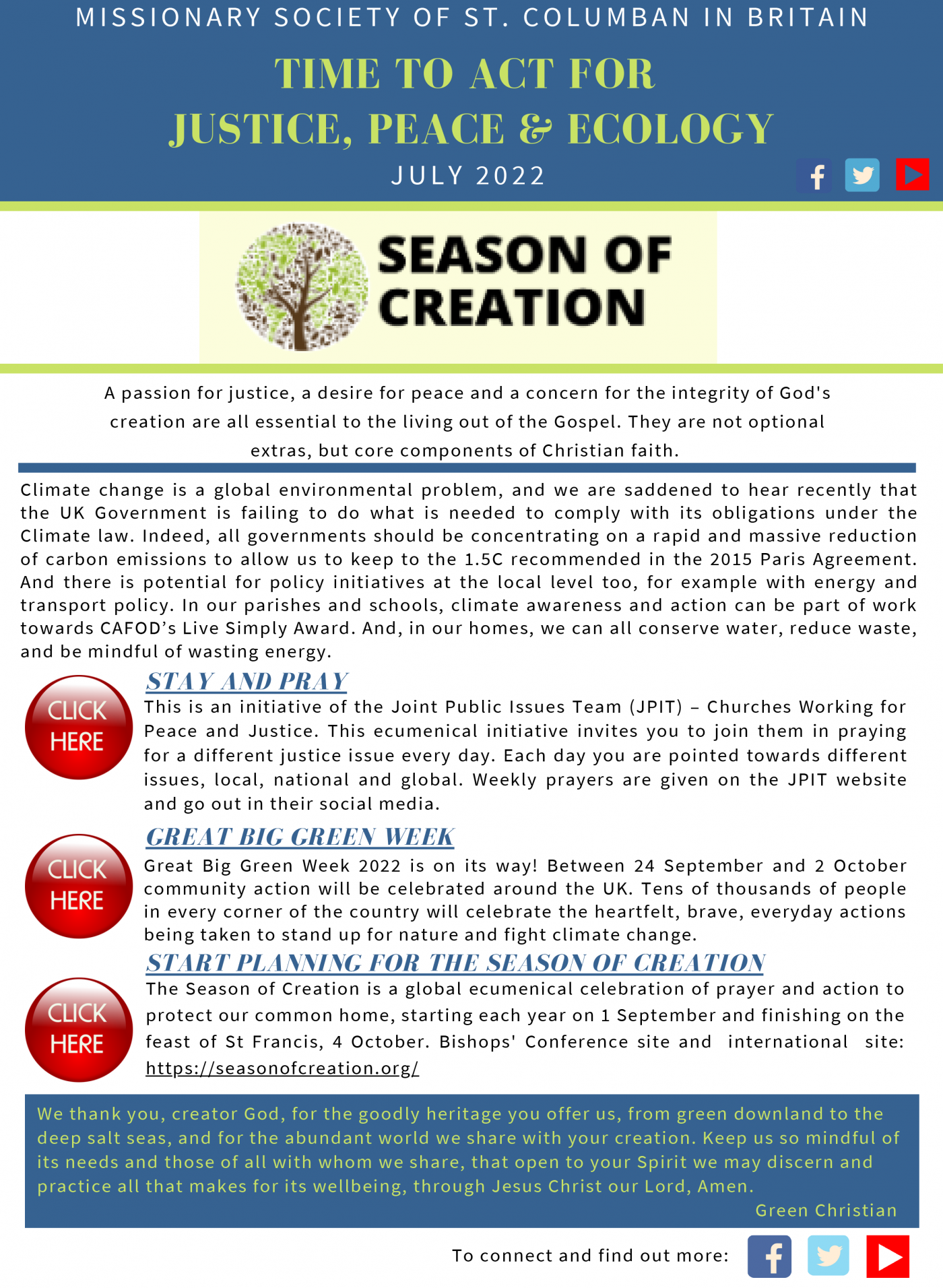‘Think globally, Act locally’ was one of the most famous slogans of the 1970s environmental movement. It was inspired by Fritz Schumacher’s world-famous book, Small Is Beautiful, published in 1973. It established the importance of an orientation towards small and human scale action, where individuals and local communities take responsibility for action building the common good. “Think globally, act locally” became the clarion call towards living sustainably.
Conversations about global climate change are now a vivid illustration of ‘global thinking’. Climate change is a global environmental problem, and we are saddened to hear recently that the UK Government is failing to do what is needed to comply with its obligations under the Climate law. Indeed, all governments should be concentrating on a rapid and massive reduction of carbon emissions to allow us to keep to the 1.5C recommended in the 2015 Paris Agreement. And there is potential for policy initiatives at the local level too, for example with energy and transport policy. In our parishes and schools, climate awareness and action can be part of work towards CAFOD’s Live Simply Award. And, in our homes, we can all conserve water, reduce waste, and be mindful of wasting energy.
Globally, Columbans help to bring the voices of indigenous people and local communities into international gatherings, so they can be reflected in the decision-making processes. An example was a faiths webinar on 28th June at a UN Conference on Oceans in Portugal, attended by two Columban representatives. One of them, Tevita Naikasowalu of the Columban Mission Office in Fiji, sang a lament for the oceans – polluted, over-fished and disrupted by deep sea mining. Archbishop Peter Loy Chong from Fiji, President of the Catholic Bishops of Oceania, underlined the same concerns and reminded that we must remain mindful that the oceans are part of God’s creation. Amidst all the academic and scientific language on Climate Change, he called for more space for spiritual and cultural perspectives. As a child he lived near the ocean and loved fishing with his mother, and said, “the people of Fiji are close to the land, sea and all God’s creatures.”
In the UK, advocacy to support such global concerns are vital. And small acts in our local environment towards sustainability, justice and peace will add up, slowly leading to change in an office, a neighbourhood, a community, a city, a diocese and so on.
“Think globally, act locally and globally” should be looked at again as our new mantra. Take almost any global problem – from climate change to wealth inequality, or from excessive corporate power to tax havens – and we find that they all share a common barrier: that unilateral action by any nation to solve or ameliorate them would cause that nation an economic competitive disadvantage. Solving these problems inevitably means tighter regulations on business, and higher taxes for the rich and corporations. Global bodies for human and environmental rights – from the United Nations to Pax Christi International – should be supported, alongside local initiatives.
The global and local are brought together each year in the July annual conference of the National Justice and Peace Network of England and Wales. Columbans will be there in force. This year, the theme is ‘Hope! A verb with its sleeves rolled up.’ The Sunday morning session will look at peace and nonviolence, nuclear issues, peace education with young people and working on climate justice. All have global and local dimensions. All of us can be involved at some level, developing our commitment to justice, peace and care for all creation.
Consider taking up at least one of the three campaigning ideas suggested for July. Fritz Schumacher says in ‘Small Is Beautiful,’ that “we need the freedom of lots and lots of small, autonomous units, and, at the same time, the orderliness of large-scale, possibly global, unity and co-ordination.”

